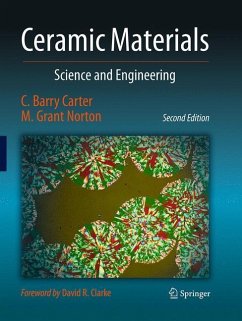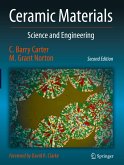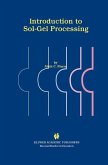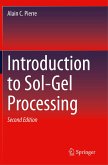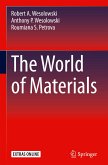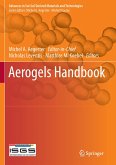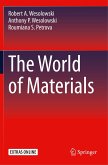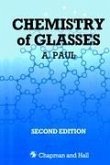Ceramic Materials: Science and Engineering is an up-to-date treatment of ceramic science, engineering, and applications in a single, comprehensive text. Building on a foundation of crystal structures, phase equilibria, defects, and the mechanical properties of ceramic materials, students are shown how these materials are processed for a wide diversity of applications in today's society. Concepts such as how and why ions move, how ceramics interact with light and magnetic fields, and how they respond to temperature changes are discussed in the context of their applications. References to the art and history of ceramics are included throughout the text, and a chapter is devoted to ceramics as gemstones.
This course-tested text now includes expanded chapters on the role of ceramics in industry and their impact on the environment as well as a chapter devoted to applications of ceramic materials in clean energy technologies. Also new are expanded sets of text-specific homework problems and other resources for instructors. The revised and updated Second Edition is further enhanced with color illustrations throughout the text.
This course-tested text now includes expanded chapters on the role of ceramics in industry and their impact on the environment as well as a chapter devoted to applications of ceramic materials in clean energy technologies. Also new are expanded sets of text-specific homework problems and other resources for instructors. The revised and updated Second Edition is further enhanced with color illustrations throughout the text.
From the book reviews:
"I will definitely select this book as a textbook for a class on this subject. ... The book includes general backgrounds materials, the basics of ceramic materials science and advanced applications of ceramic science and technology. Therefore, non-specialists (even non-science majors) including undergraduate, and graduate students as well as experts in the field can learn from various parts of in this book." (Katsuhiko Ariga, Journal of Inorganic and Organometallic Polymers and Materials, Vol. 24, 2014)
"I will definitely select this book as a textbook for a class on this subject. ... The book includes general backgrounds materials, the basics of ceramic materials science and advanced applications of ceramic science and technology. Therefore, non-specialists (even non-science majors) including undergraduate, and graduate students as well as experts in the field can learn from various parts of in this book." (Katsuhiko Ariga, Journal of Inorganic and Organometallic Polymers and Materials, Vol. 24, 2014)
Praise for Ceramic Materials: "The unprecedented completeness of this book makes it a bible on ceramic materials. It is a must read textbook for researchers, graduate students and undergraduate students who are interested in ceramics." -- Zhong Lin Wang, Regents' Professor, The Hightower Chair in Materials Science and Engineering, Georgia Institute of Technology "...an outstanding introduction to the subject, clearly written, very detailed, and actually fun and quite easy to read for anyone with some basic scientific background. Each chapter contains several exercises, which this reviewer found to be very helpful. I also found extremely useful the shaded boxes on almost every page with short definitions plus "people in history". After being exposed to many books on ceramic science during my 40-year career, I finally found a book with which I can restart my ceramic education again." --Antoni Tomsia, Lawrence Berkeley National Laboratory "...a valuable resource for the materials science and engineering community, both as a textbook and as a general reference to this important field....recommended reading and a serious study source for anyone interested in ceramics..." --Richard W. Siegel, Director, Rensselaer Nanotechnology Center, Rensselaer Polytechnic Institute "The book is just wonderful, and one can only envy what the authors have done! It is the best book I have seen to date. Very clearly written with excellent examples and explanations [as well as] beautiful figures and photographs." --Professor Safa Kasap, Canada Research Chair in Electronic and Optoelectronic Materials, University of Saskatchewan "This new book...covers all important topics including history, microstructures, tools, defects, mechanical properties and processing of ceramics for understanding and solving the problems of ceramic science and engineering,..." --Yuichi Ikuhara, The University of Tokyo "This is a comprehensive text covering, as the title suggests, both the science and engineering of ceramic materials. What I particularly like about the presentation of the material is it that it is broken down into useful themed sections where related topics are grouped together....This will be a very useful text for MSE undergraduate ceramic courses and for post graduates starting MSc or PhD work and who are new to the field of ceramic materials." -- Professor John Kilner, BCH Steele Chair in Energy Materials, Department of Materials, Imperial College London "Ceramic Materials: Science and Engineering is a very thorough book....Its uniqueness lies in the coverage of fundamentals...[as well as] properties and applications...at an unparalleled level, while also providing excellent sections on defects and processing....Carter and Norton's book is a must have in the ceramics field." --Juan Claudio Nino, UFRF Professor, Department of Materials Science and Engineering, University of Florida, Gainesville "It is no mean task to compete with Kingery et al.'s classic textbook on the subject, but the authors have managed to provide a fresh new perspective on the subject with their unique and student-friendly writing style coupled with spectacular graphics and micrographs.... a truly remarkable text that is bound to become a benchmark in the field." --N. Ravishankar, Materials Research Centre, Indian Institute of Science "...an excellent introductory textbook and basic reference for students and professionals interested in the field of technical ceramics.... There are two aspects which set this book apart from most specialty engineering text books. First, this book is replete with micrographs, photographs, and diagrams that complement the refreshingly easy-to-read text. Second, the authors discuss the field of technical ceramics in a societal context that will help novices understand why ceramics are important to our past and future. In summary, I highly recommend this text." -- Doreen Edwards, Dean and Professor of Materials Science, Inamori School of Engineering at Alfred University "As a practitioner of ceramic science and technology over the last twenty five years, I was truly amazed with the easy to understand and quite innovative presentation approach of various contents in the book....This book provides a comprehensive look at various topics from the fundamental aspects of ceramics to the properties required for various applications..... I am sure this book will serve a key reference to students, technology developers, and end users all over the world."-- Dr. M. Singh, Chief Scientist, Ohio Aerospace Institute, NASA Glenn Research Center

